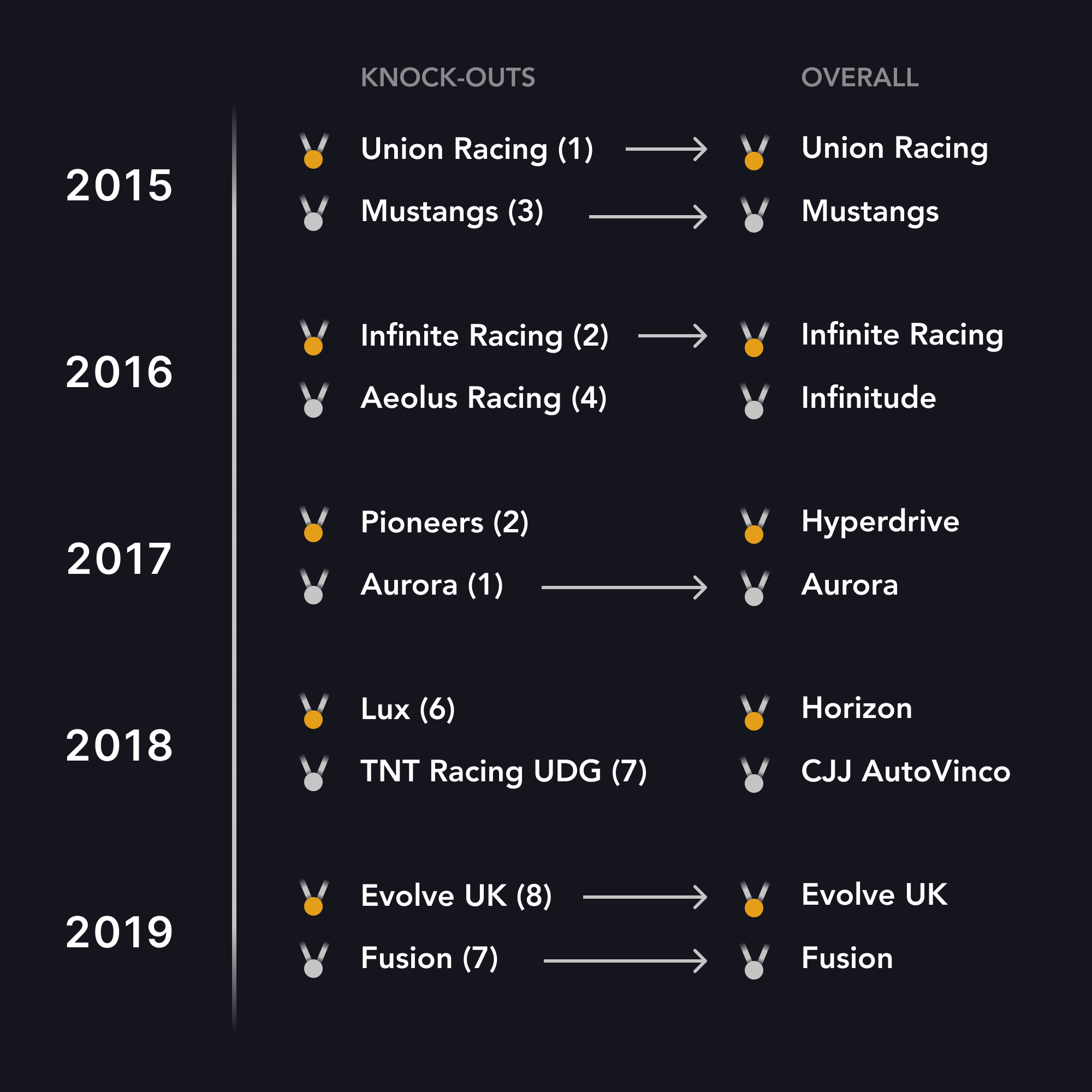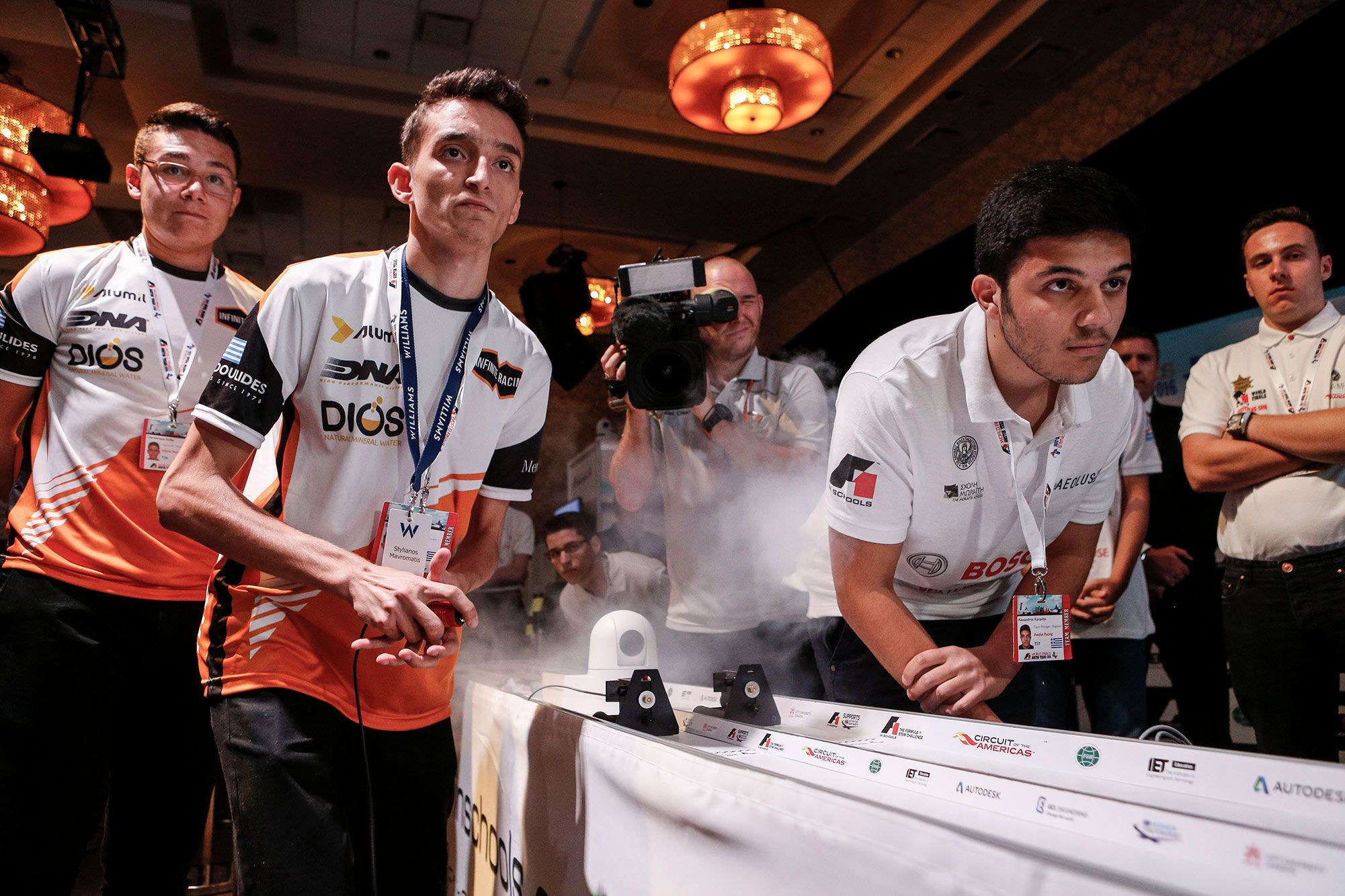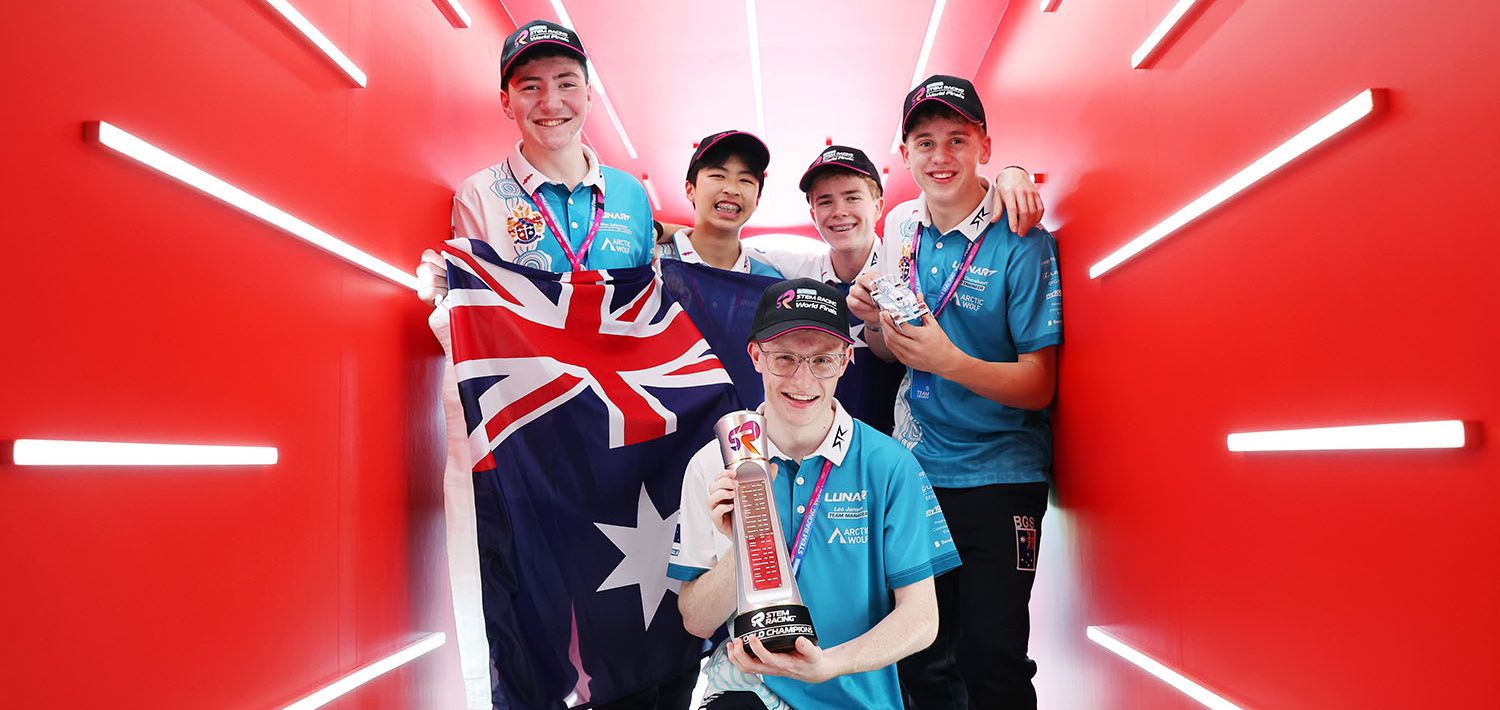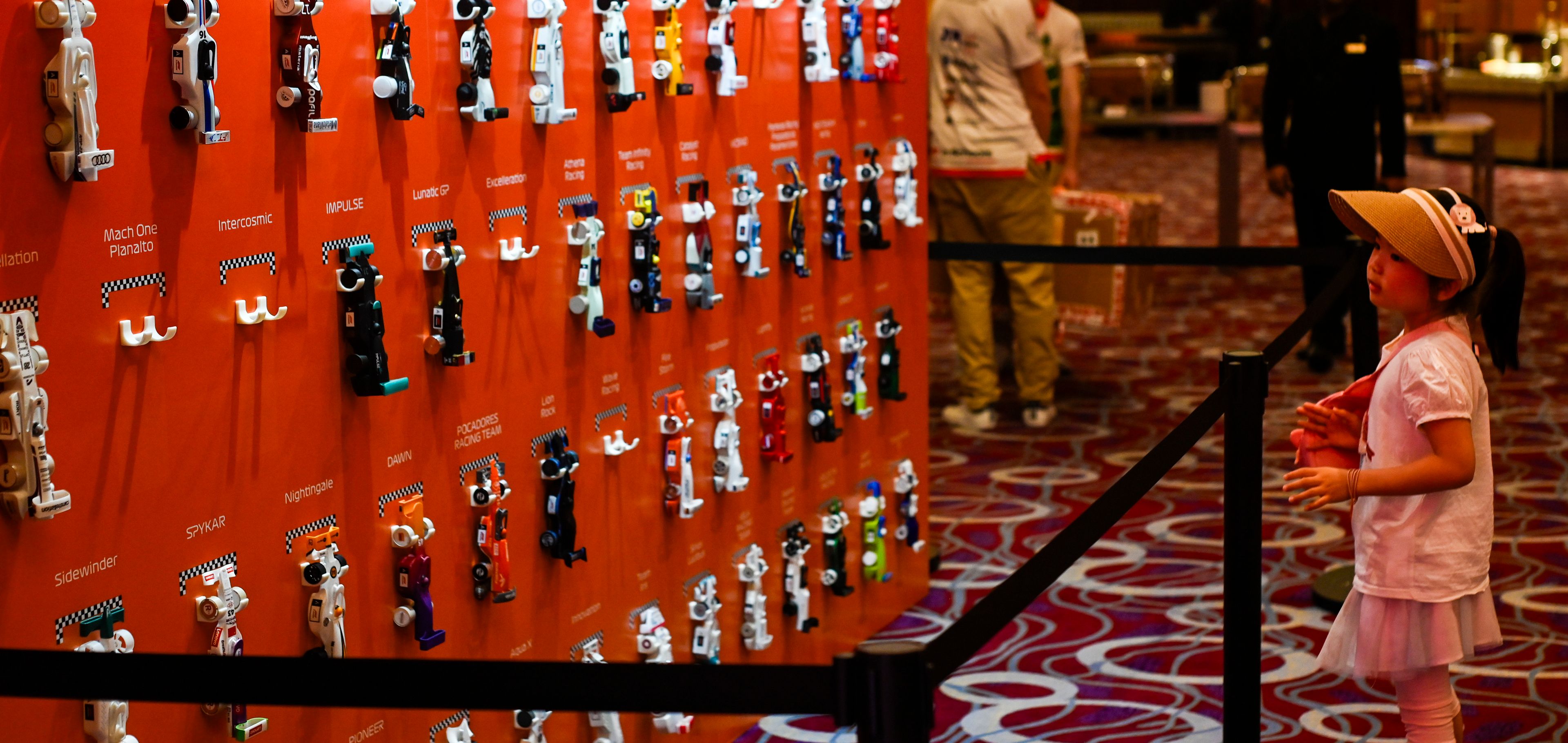Is knock-out racing the best predictor we have for the overall competition?
In three of the last five World Finals the knock-out winners have gone on to become World Champions.
George Stonor June 7, 2021
These teams were Union Racing in 2015, Infinite Racing in 2016 and Evolve UK in 2019 and it’s not just first place that knock-outs predict well. In the same time period from 2015 to 2019, the runners up in knock-outs three times went on to come second overall: Mustangs in 2015, Aurora in 2017 and Fusion in 2019. The winners of the 2017 knock-out, Pioneers, went on to stand on the third step of the podium.

With only 30 points, of the 1000 points available in total (although knock-outs is not worth any points at the virtual 2020 World Finals), it is not completely clear as to why there seems to be this correlation. One possible explanation is that knock-outs is won by teams with fast cars, who then also score high points for time trial racing, worth 220 points, making a bigger difference in the total standings. This hypothesis is backed up from results from 2015, 2016 and 2017 in which winners and runners up were seeded as follows: Union Racing (1), Mustangs (3), Infinite Racing (2), Aurora (1).
However, this theory does not account for the 2019 results in which Fusion were seeded 7th and Evolve UK 8th. Whilst these are still good race times, teams with faster race times did not end up appearing on the podium. Fusion’s Markus Vetter provided a really interesting and nuanced insight into why this might be.
“I guess it might showcase that these teams (that perform well in knock-outs and overall standings) probably have the better engineered cars as they are fast on a consistent basis and don’t have too big issues with reliability. As I assume they might be more professional across all the comp-elements and just try to aim for the perfect compromise between aiming for the limit and leaving “tolerances” (risk management) instead of just going all over the ceiling.”
This theory makes a lot of sense because in knock-outs, whilst it helps to have a fast car, each team has only two races to perform well in so if their cars are inconsistent then teams may not post competitive times. Another factor is that each car will have raced four times before the knock-out racing. These races all end with harsh impacts in the deceleration zone so teams that have put more effort into the engineering and manufacturing of their cars will likely have created cars that will be less damaged by the time of the knock-outs. Generally, teams that pay the extra care and attention to ensure their cars can survive racing are teams that have also likely paid extra attention to all areas of the competition and are likely to do well in the overall standings.
George Stonor is a UK correspondent. He was Team Principal and Lead Engineer of Evolve UK, 2019 F1 in Schools World Champions.
Latest News
World Finals 2025
Australian team Lunar crowned 2025 STEM Racing World Champions in Singapore
The team becomes the eighth from Australia to win the STEM Racing (formerly F1 in Schools) World Championship.
News
STEM Racing to be the new name of F1 in Schools
The competition is set to rebrand to STEM Racing, Formula 1 has announced.
WORLD FINALS 2023
The History of F1 in Schools Cars
F1 in Schools has been running for over 15 years now and with the 2023 Aramco F1 in Schools World Finals having just finished, why don't we look at th...



